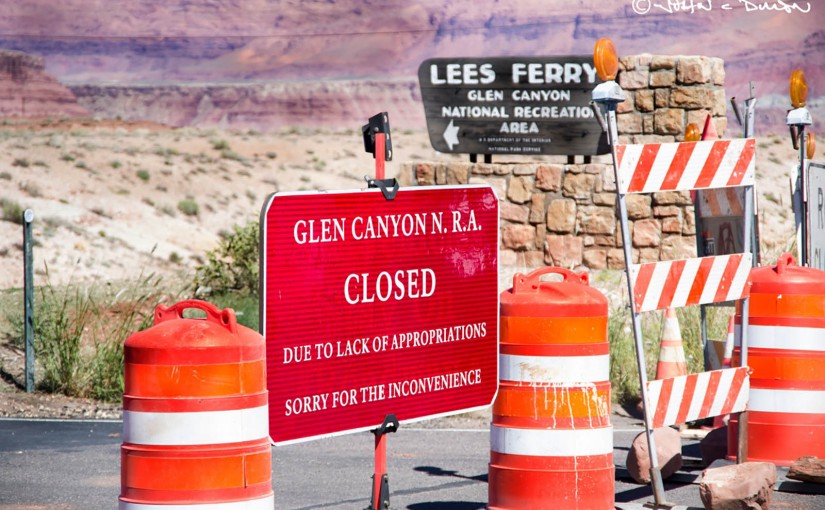Report: Federal shutdown will slow state’s fourth-quarter growth

Cronkite News
The federal government shutdown last month could shave 0.3 percent off the expected growth of Arizona’s gross state product in the fourth quarter of this year, according to a recent report.
The analysis by Moody’s Analytics said that could translate into a loss of $203 million in the gross state product for the quarter, as federal spending was cut back and the state’s defense and tourism industries took a hit.
While Arizona’s gross state product was hit harder than those of many other states, an official with Moody’s said he expects that Arizona will bounce back relatively quickly.
“Arizona is in a better shape to weather the hit,” said Steve Cochrane, an economist and managing director at Moody’s Analytics.
Nationally, the Moody’s report said, the 16-day shutdown is expected to cost the U.S. $20 billion in the gross domestic product and cut 0.5 percent in the expected growth of the GDP for the quarter.
There is no question that the shutdown hurt Arizona’s economy, said Lee McPheters, an economist at Arizona State University’s W.P. Carey School of Business.
“It is going to be a flat spot at best,” McPheters said of the quarter. “We just have to get past it.”
But McPheters said there are other drags on the state economy, noting that Arizona’s unemployment rate of 8 percent cost the state more than the federal government closing up shop for two weeks.
“We have people who are not working, who, every month are not adding to GDP,” McPheters said. “That is a bigger problem for Arizona.”
The Moody’s report predicts that Washington, D.C., will be hardest hit by the government shutdown, followed by Maryland, Alabama, Virginia, and New Mexico. All will see fourth-quarter gross state product growth drop by more than half a percentage point, Cochrane said.
He said the slump in GDP growth is only expected to last for the fourth quarter, unless political uncertainty around the federal budget and the national debt continues.
The government was partially shut down on Oct. 1, the start of federal fiscal year 2014, when Congress failed to agree on a budget for the year. While military, police and other essential workers remained on the job, an estimated 800,000 federal workers were sent home.
Government reopened Oct. 16 when lawmakers agreed to a deal to keep funding operations at the previous year’s level through Feb. 7, giving lawmakers more time to reach a deal on the 2014 budget.
But if lawmakers cannot agree by then, the government could shut down again.
Sen. John McCain, R-Ariz., said this week he is still upset over the political gamesmanship in Washington that led to the shutdown.
“They have done collateral damage to innocent citizens in my state,” McCain said. “I am not proud of our four Republican congressmen who supported this effort and they still don’t realize the damage they did to our state.”
Moody’s said the country lost more than 50 million hours of labor from federal civilian workers as a result of the shutdown. But the Arizona Chamber of Commerce said that the shutdown hurt those in the private sector as well as furloughed government employees – who will get back pay for the time they were furloughed.
“There is no back-pay for those (private-sector) people,” said Garrick Taylor, spokesman for the Arizona Chamber of Commerce.
Tourism-related businesses were some of the hardest hit, Taylor said. As businesses try to get back on track, the chamber is telling Congress that they cannot handle another shutdown.
Cochrane said he does not believe Congress wants another shutdown, but just the possibility slows economic growth. Uncertainty in Washington can keep businesses from hiring, expanding, and making new investments, Cochrane said, all things that affect the economy and the GDP.
McPheters said economists are just starting to realize how much uncertainty in Washington can affect the economy. In Arizona, federal spending can affect government employees, contractors who depend on government contracts to survive and related businesses.
“Early studies are showing that because of all the uncertainty of what the government will be doing, job growth is actually slower,” McPheters said. And when Congress only makes short-term deals, it can be destabilizing to national and state economies.
But it is not “all doom and gloom” to McPheters, who has hope for Arizona next year. Consumers paying off debt, rising home prices and steady population growth encourage him about the state’s economic future.
“Most Arizona analysts are still optimistic about 2014,” McPheters said. “We ought to be out there among the top 10 growth states. Most people expect that to happen in 2014 and 2015.”















